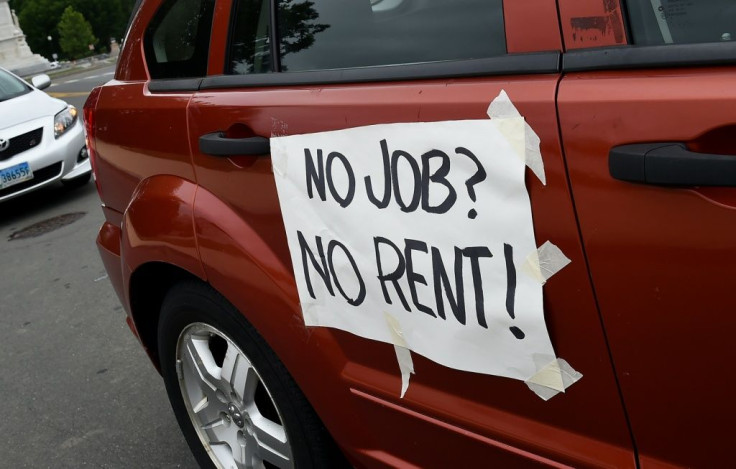Americans Keep Spending, Even As Layoffs Continue
Retail sales rose in the United States in June but weekly data indicated a steady flow of layoffs, and with the coronavirus outbreak worsening, analysts fear further deterioration in the economy's health.
The US is home to the world's worst coronavirus outbreak, with a record 67,632 cases reported in the previous 24 hours, bedeviling states' efforts to get business back to normal.
The Labor Department on Thursday said new claims for unemployment benefits were at 1.3 million last week, higher than expected and barely changed from the week prior, meaning the surge in layoffs that began in mid-March as businesses closed has yet to subside.
Positive developments were seen in retail sales data released by the Commerce Department and in a survey showing growth among manufacturers covered by the Philadelphia Federal Reserve Bank.
But economists fear the tentative economic recovery seen in recent weeks will be throttled by the renewed onslaught of COVID-19 cases forcing states to roll back reopening.
"The reality is these numbers have remained elevated," Adam Ozimek, chief economist at freelancing platform Upwork, said on Twitter of the weekly claims data.
"What this looks like is continued job loss and continued permanent business closures."
In an interview with Yahoo Finance, New York Federal Reserve Bank President John Williams said the economy was in "a very deep hole" but at an important moment, with activity apparently recovering even as the virus remains a threat.
"My hope is... that we'll continue to see positive signs of a gradual recovery of the second half of this year into next year, but right now this is a critical inflection point," he said.
Federal rescue measures like the $2.2 trillion CARES Act that expanded unemployment benefits and offered money to small businesses were "absolutely critically important" to the economy, even though some of that law's provisions will soon expire.
Thursday's Labor Department data also showed an additional 928,488 people in 47 states made initial claims for benefits under a special program for workers affected by the pandemic who wouldn't normally be eligible for aid.

However, in the week ending on July 4, the insured unemployment rate dropped 0.3 points to 11.9 percent, with 17,338,000 people receiving benefits -- further evidence that at least some of those who lost their jobs as the pandemic arrived have returned to work.
The number of weekly initial claims still remains well above any single week of the global financial crisis 12 years ago, and this week's release brings the total number of layoffs since mid-March to 51.2 million.
"The trend in initial jobless claims has now just about stopped falling; next week could easily see an increase" due to the virus's resurgence, particularly in the southern and western parts of the country, said Ian Shepherdson of Pantheon Macroeconomics.
"A flat trend in initial claims -- which will in due course stop the downward trend in continuing claims -- probably is about the best we can hope for."
Separately, the Commerce Department said retail sales were up 7.5 percent in June compared to May, with $524 billion in business, a better result than economists forecast.
But the data, which reflects the period before the recent rollback in reopening measures, was nonetheless below the 18.2 percent surge seen in May.
The pace of sales in the last three months of the COVID-19 crisis declined 8.1 percent below the same period of 2019.
Mickey Levy of Berenberg Capital Markets said retail sales had made a "v-shaped" recovery that put them just 0.6 percent below their level in February before the pandemic hit, which he credited to money doled out to Americans as part of the CARES Act.
While accommodation, recreation and transportation spending will probably remain depressed, he saw the growth continuing, reflecting a rebound in healthcare services spending.
The National Retail Federation welcomed the growth but warned it could only be maintained if the coronavirus doesn't spiral out of control.
"All eyes are on the infections that are accelerating in many parts of the country, and they pose a serious threat to recovery," said chief economist Jack Kleinhenz.
© Copyright AFP 2024. All rights reserved.




















